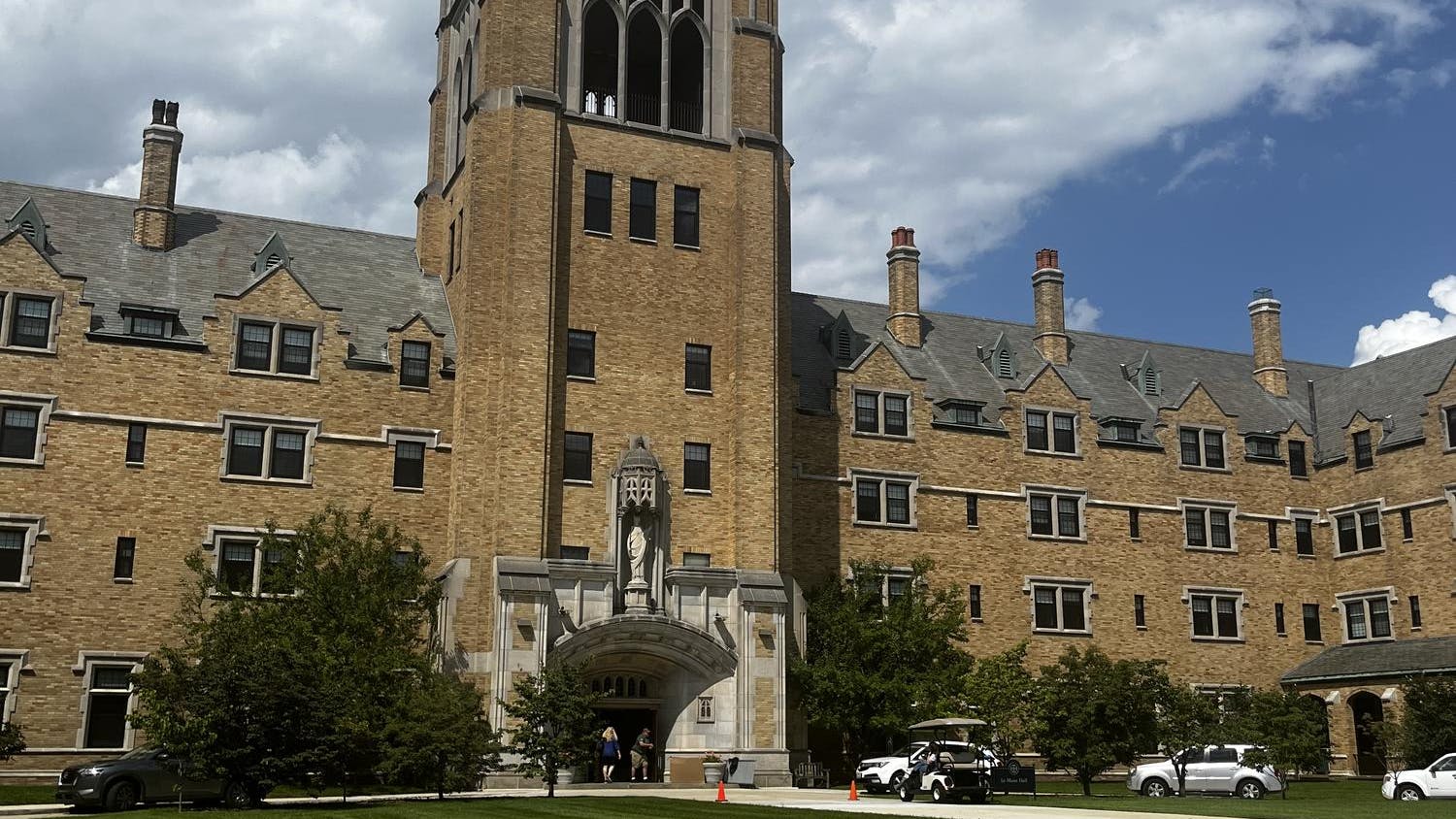Student Senate discussed the effectiveness of the First Undergraduate Experience in Leadership (FUEL) program and the implementation of the Mendoza College of Business's major-eligibility algorithm at its Wednesday meeting.

FUEL began two years ago as FLEX, the Freshmen Leadership Experience, a program for freshmen interested in getting involved in student government. Student body vice president Brett Rocheleau said the program transformed into FUEL this year.
"This year it was a way for first year students to be a part of the policy-making side of student government," he said. "It was the first year FUEL was truly a part of student government in this manner."
FUEL co-director Ricky Bevington said the program places the freshman participants into the various Senate committees where they function as regular members.

Bevington asked the group how they felt the program could better serve student government and better inform future student leaders.
"First, as the policy-making branch of student government, we want to hear how FUEL can best help you," he said. "And second, a lot of you are new faces. We want to hear what you wish you knew about student government before you came to Senate."
Badin senator Jen Simpson suggested the directors better advertise FUEL in the future.
"A lot of freshmen didn't know about it then, but know about it now and would have liked to participate," she said.
Cavanaugh senator Gaby Nunez recalled seeing FUEL at Student Activities Night but said she didn't know exactly what it entailed.
"I thought it was more just exposure to student government, I didn't know it was actual policy-making," she said. "It should be advertised as such, like you're actually involved in making things happen."
Turning from student government to academics, the group debated whether students should attempt to fight Mendoza's use of algorithms for determining which majors students can enter. Rocheleau said that while the algorithms have been in place for three years, one was used for the first time this year for the finance major.
Rocheleau said 290 students applied to the Finance major program, which was capped at 250 students. The remaining 40 students were either placed in their second choice major or marketing, the only business major with space left.
The algorithm that decided which students were able to declare finance was based off five criteria: the student's current GPA, grade in Calculus I, ACT/SAT score, current number of credits from Mendoza and current number of total credits at the University.
"When we came to Notre Dame the admissions office told us we could take any major we wanted at ND and now we can't," academic affairs chair Neal Ravindra said. "It's not the University's fault but it's still a fact."
Some senators expressed concern at the fairness of using so few factors in the algorithm. Campus technology chair Yiting Zheng said hard working and intelligent students can end up with a poor GPA under certain circumstances.
"At least half our engineering class disappears," Zheng said. "Beginning freshman year engineering is really tough and your GPA is shot. And then you realize you want to be a business student and you're at a disadvantage."
Regardless of whether an attempt is made to reverse the algorithm policy, Morrissey senator Calvin Belden said the University should inform incoming students of the caveat on the presumed freedom to choose a major at Notre Dame.
"It would be a really disappointing shock if you come here and you were planning on being a finance major and then couldn't," Belden said.












